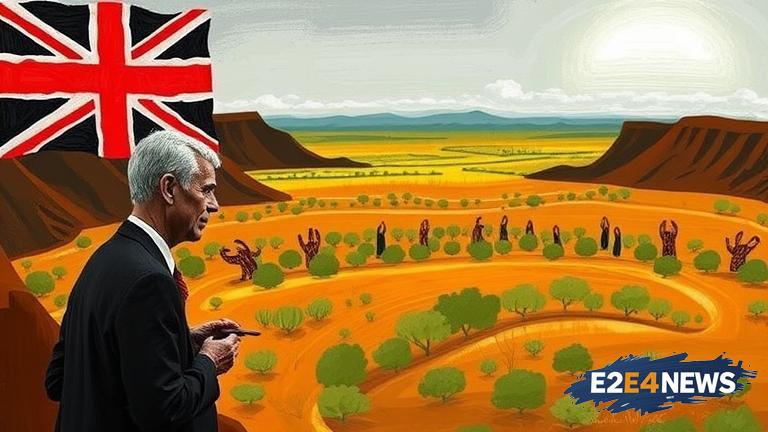The debate over Indigenous recognition in Australia has been ongoing for years, with many arguing that it is essential to acknowledge the country’s complex history and provide a sense of justice and equality for its Indigenous people. Recently, the issue has gained significant momentum, with various groups and individuals pushing for constitutional reform. The Australian government, led by Prime Minister Anthony Albanese, is facing increasing pressure to take concrete steps towards recognition. The recognition train, as it has been dubbed, has left the station, and many are wondering if Albanese will jump aboard. The Prime Minister has expressed his commitment to Indigenous recognition, but the question remains whether he will take decisive action. The Australian public is eagerly awaiting a clear plan of action from the government, and the clock is ticking. The Indigenous recognition debate is not just about symbolism; it is about addressing the historical injustices and ongoing disparities faced by Indigenous Australians. It is about providing a sense of belonging and identity for the country’s first peoples. The Australian constitution, which was written over a century ago, does not mention Indigenous Australians, and this omission is seen as a significant oversight. Many argue that recognition is essential to reconciliation and that it will have a positive impact on Indigenous health, education, and economic outcomes. The Australian government has established a joint parliamentary committee to investigate the issue, and various models of recognition are being considered. One of the key challenges is finding a model that is acceptable to both Indigenous Australians and the broader community. Some argue that a minimalist approach, which would involve a simple acknowledgment of Indigenous Australians in the constitution, is the best way forward. Others advocate for a more substantive approach, which would provide greater rights and protections for Indigenous Australians. The debate is complex, and there are many competing views and interests at play. Despite the challenges, there is a growing sense of optimism that the Australian government will finally take action on Indigenous recognition. The recognition train has left the station, and it is gaining momentum. The question is, will Albanese jump aboard and provide the leadership necessary to drive this important issue forward? The Australian public is watching with bated breath, and the world is waiting to see how this critical issue will unfold. The Indigenous recognition debate is a defining moment in Australian history, and the outcome will have far-reaching consequences for the country and its people. As the debate continues to unfold, one thing is clear: the time for action is now. The Australian government must take decisive steps towards recognition, and the Prime Minister must provide the leadership necessary to drive this issue forward. The future of Indigenous Australians and the country as a whole depends on it. The recognition train is moving, and it is up to Albanese to ensure that it reaches its destination. The Australian people are counting on him to take action and to provide a sense of justice and equality for the country’s first peoples. The clock is ticking, and the world is watching. It is time for the Australian government to take a significant step towards reconciliation and to recognize the rights and dignity of Indigenous Australians.
